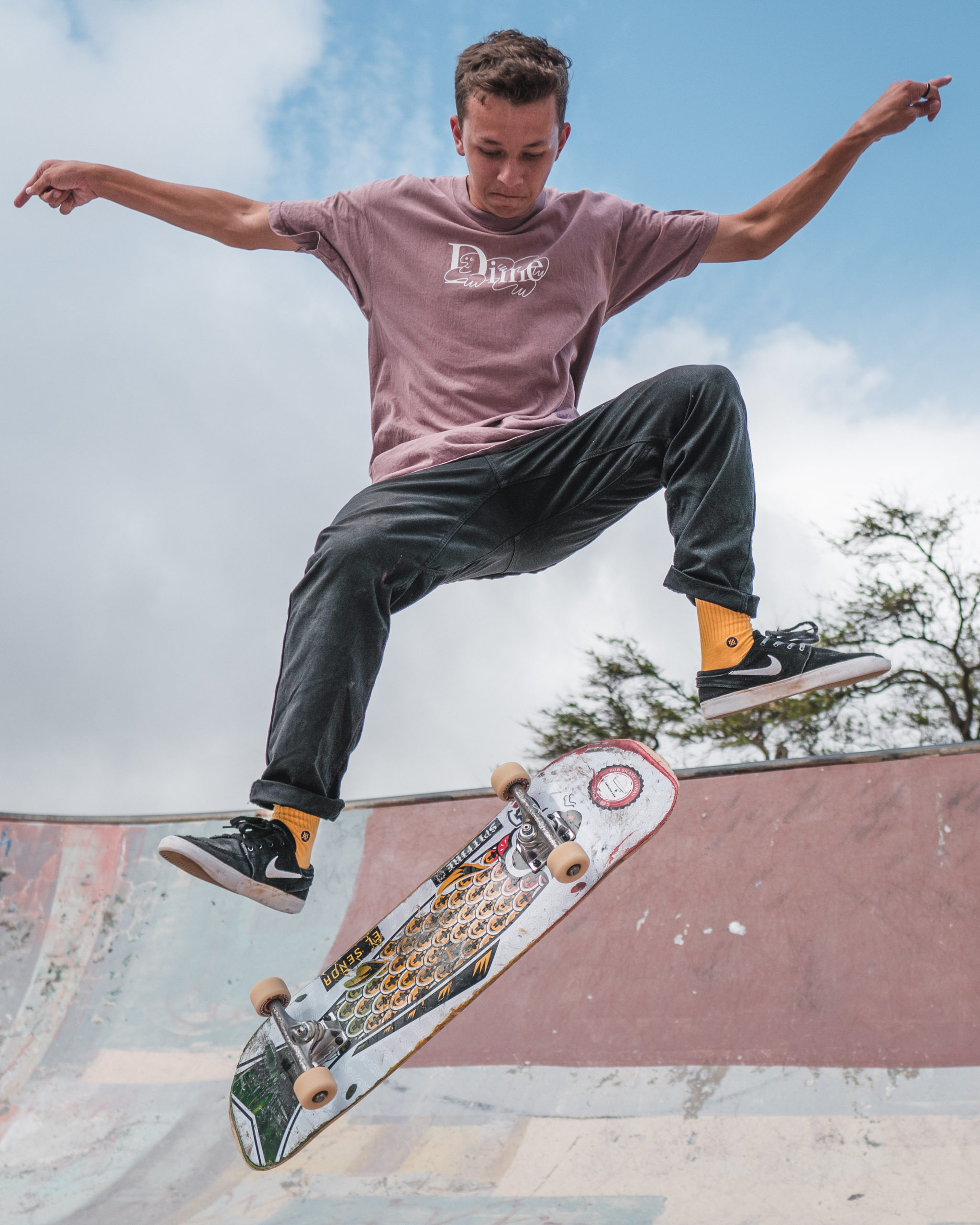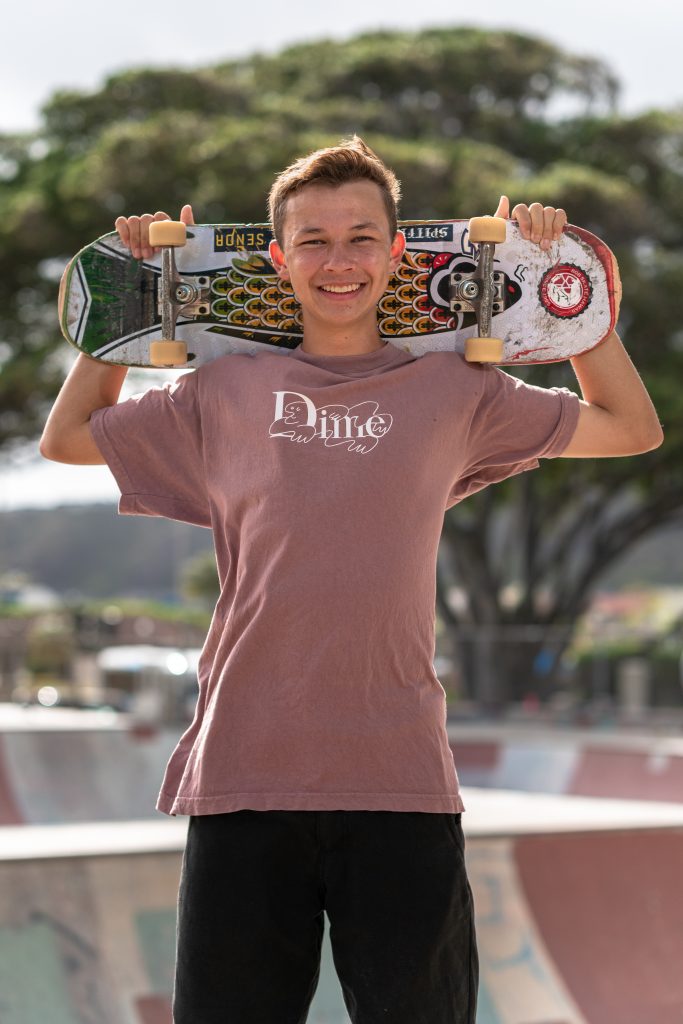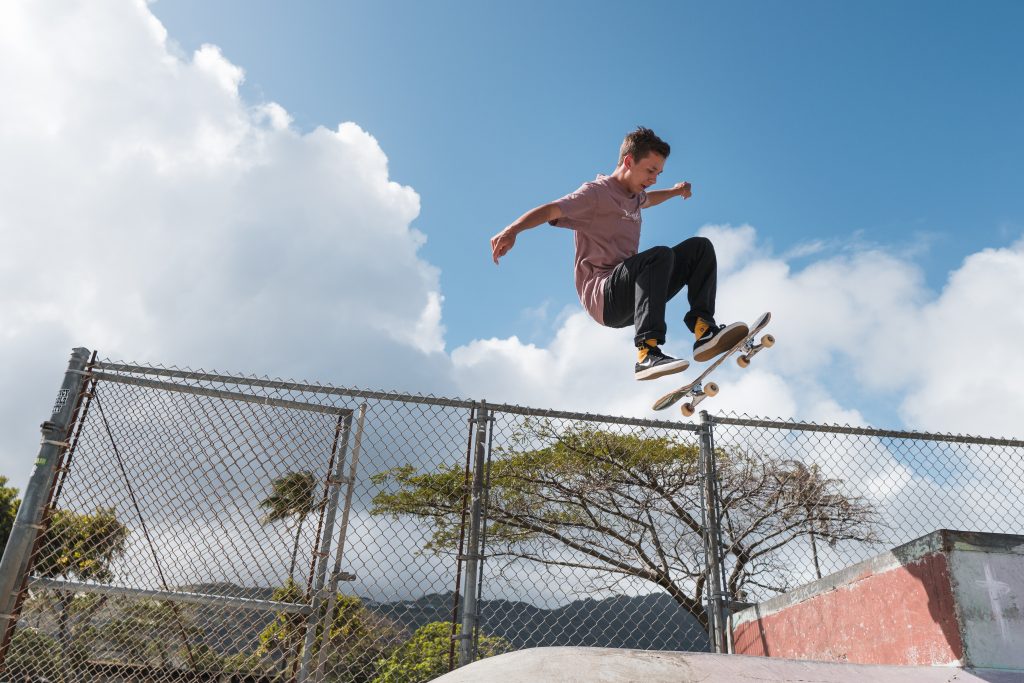“Pop, Jump, Slide.” A Skateboarder’s Story.


Like the millions of other people who’ve heard this advice from professional skater Aaron Kyro, senior Tanner Weeks has taken these words to heart. It all began in sixth grade, when a couple of friends tried to teach him how to do an ollie. Weeks didn’t get it but it sent him to the unofficial school for skateboarders around the world—YouTube.
Weeks started by looking up “how to kickflip” and he found a video that explained exactly what to do. He got on his board to try it out but struggled for weeks before he landed his first kickflip. Weeks said, “When you do your first flip trick the feeling is crazy. I’m like ‘I just flipped my board under me and I landed’”. Later that night, Weeks remembers running into his home screaming after landing another new trick. “My mom was like ‘Are you ok?’ , and I said ‘I landed a fakie heelflip’.”

WIth six years of skateboarding behind him, Weeks is now at the stage where the challenge is combining basic tricks to make more difficult ones. He says the learning curve is steep but he is glad he stuck to it. “Putting in the work to learn new tricks is very hard and time consuming, but in the end it is very rewarding. When you land a trick that you haven’t learned, there is no feeling that you can compare it to; it is totally unique. That is what keeps us all going,” he said.
Weeks admits to being a perfectionist especially when it comes to skating. Landing a trick is not enough; he pushes himself to perfect the feel and the look of the trick until it is to his liking. “Sometime I have a tendency to get pretty angry towards something because I am really critical towards myself when it comes to what I am doing. In skating, when I don’t land a trick, I can get frustrated and angry, and it can be very obvious to the people around me and I don’t want that to happen. So, skate-boarding has taught me a lot of patience and self-control,” he said.

Contrary to the school drop-out stereotype that many associate with skateboarding, Weeks is an example of how skateboarding can bring out the best in someone. “[Skating] has taught me to keep trying and that anything I try at, I’ll get good at, as long as I put in the work,” he said. Weeks’ mother, Tammy Weeks, is very supportive of his skating but admits that she was worried at first because of the negative stereotypes associated with it. “Over the years, I have noticed that skateboarders have become more respectful, do well in school and care about the community,” she observed. With skateboarding making its debut in this year’s Tokyo Olympics, Tanner Weeks is hopeful that negative opinions on skateboarding could change.
Tammy Weeks is thankful that her son has been able to find something he is passionate about. “I am proud of Tanner’s dedication and love for skateboarding. He spends countless hours trying to learn new tricks and improve his skills. Tanner has changed so much from when he first started skateboarding. He was afraid of failure or looking dumb in front of others. Now, Tanner skates with confidence and loves talking to and meeting new people at the skatepark,” she said.

For Tanner Weeks, going to the skatepark after school is what drives him through the day to get his school work done. “Skating offers me peace of mind when I am really stressed out or when things are not going well. It’s my escape from reality.” The mental and physical intensity of skating, especially when he’s working on learning a new trick, helps Tanner Weeks take his mind off academic responsibilities and pressures. Instead of worrying about grades or college applications, Tanner Weeks focuses his mind on things like foot-positioning and timing. “I mentally visualize every detail that goes into a trick. I visualize my foot positioning and when and where they will move to. Every time I attempt it, I’m constantly changing a small detail so that hopefully the trick will come around and I can land it,” he said.
Looking back at his skateboarding experience, Tanner Weeks said, “I think that skateboarding has helped me grow socially more than anything. I struggled with self confidence, but I found that the community valued me. In the end, I just hope that I can pass down that encouragement of self worth to younger kids that still may be struggling with those same problems.”
1 Comment

I am so proud of my grandson, Tanner. And, I am especially proud of tanner’s mom. She supports Tanner in all he does.